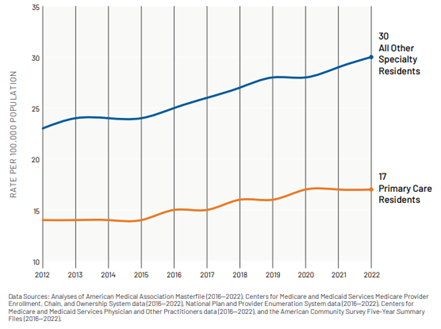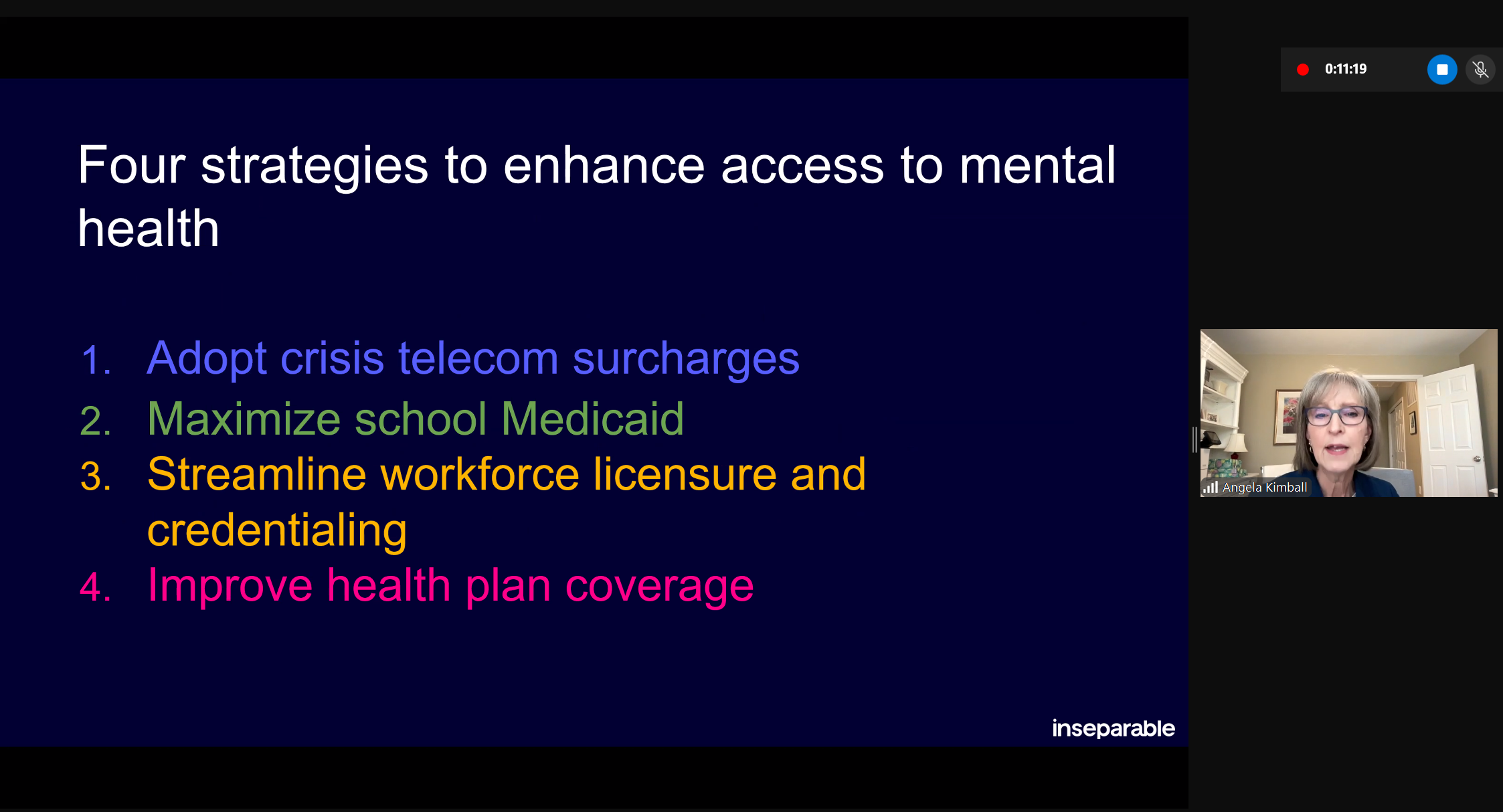September 12, 2019
The Honorable James Inhofe
Chairman
Senate Armed Services Committee
218 Russell Senate Office Building
Washington, D.C. 20510
The Honorable Jack Reed
Ranking Member
Senate Armed Services Committee
218 Russell Senate Office Building
Washington, D.C. 20510
The Honorable Adam Smith
Chairman
House Armed Services Committee
2216 Rayburn House Office Building
Washington, D.C. 20515
The Honorable Mac Thornberry
Ranking Member
House Armed Services Committee
2216 Rayburn House Office Building
Washington, D.C. 20515
Dear Chairman Inhofe, Ranking Member Reed, Chairman Smith and Ranking Member Thornberry:
Earlier this year, the National Governors Association (NGA) wrote to you requesting the inclusion of governors’ top legislative priorities in this year’s National Defense Authorization Act (NDAA). We thank both the House and Senate for including provisions in their respective bills reflecting this request. As you look to negotiate the final conference bill, we ask you consider the following items.
National Guard Response to Catastrophic Disasters
Over the past two years, we have requested that Congress grant the President and the Secretary of Defense, upon request from a governor, the authority to authorize Title 32, section 502 (f) for National Guard members supporting the response to a catastrophic disaster.
As noted in our earlier request letter, we believe the use of Title 32, 502 (f) in catastrophic situations will improve our collective response, ease the economic burden on states and ensure the well-being of our National Guard members and their families. Likewise, the payment process would be streamlined through the Department of Defense’s payment system, rather than diffused among 54 varying state systems and policies. This in turn would ensure the Guard and their families would not have to worry about their paychecks when responding to these extreme disasters should Title 32 be authorized.
- House Sections 520D & 520E: Governors request the Senate recedes to House sections 520C and 520D. We note that the language is not a mandate to the Department of Defense, rather it provides an additional tool for response efforts. We stand ready to work with the federal government to identify the appropriate requirements for authorizing this authority, as required by the reporting requirement in section 520E.
Perfluorooctane Sulfonate (PFOS) and Perfluorooctanoic Acid (PFOA)
We thank Congress for taking significant measures this year – in both the NDAA and other legislative
vehicles – to address the ongoing challenges associated with perfluorooctane sulfonate (PFOS) and perfluorooctanoic acid (PFOA) contamination. Specifically, we appreciate both the House and Senate granting National Guard Bureau access to specific environmental restoration programs, ensuring that it no longer drains readiness accounts to fund important testing and remediation activities.
- Senate Section 318 & 319: Governors request the House recedes to the Senate section 318 and 319.
Reserve Component Duty Status Reform
We thank you for listening to our collective concerns regarding the Department of Defense’s legislative proposal on duty status reform and delaying action on this language. We are pleased to see that the Administration took into consideration our concerns and removed language from its proposal that would have modified the Insurrection Act to allow the President of the United States sole discretion regarding the number of troops deployed in a state. We are also pleased that no language was included to remove the statutory requirement under Title 32 of United States Code requiring the President or the Secretary of Defense obtain a governor’s permission before ordering a member of their state militia to full-time duty.
We look forward to working with you and the Administration to ensure future changes in law as part of duty status reform provide parity amongst components, ensure minimal disruption to compensation and benefits, and ease the transition for our service members, especially our respective National Guards, and ensure gubernatorial authority.
National Guard Full Time Support and End Strength
Governors and our adjutants general have long called on the Department of Defense to grow National Guard end strength and full-time support positions. As you know, the Guard took significant cuts due to the Budget Control Act, along with the Department, but unfortunately the Guard has not seen commensurate growth as the rest of the Department as enabled by congressional budget deal increases.
We continue to be concerned about this trend considering both the national security and defense strategies provide a renewed focus on defending the homeland. We believe the growth in National Guard end strength and full-time support positions are critical to ensuring our responsiveness and readiness for the full spectrum of guard operations – both at home and overseas.
We appreciate the reporting requirements in both the House and Senate Armed Services Committees reports that require the Department to review the full-time support structure and requirements for the National Guard.
Senate Sections 1036, 1037 & 1038
We are extremely concerned over specific provisions in the Senate version of the NDAA and ask they be excluded from the final bill.
Senate Section 1036 & 1037 would dramatically and wrongly expand the authority of the President the Secretary of Defense, and the Chief of the National Guard Bureau, pre-empting state authority. Expanding the existing law to include federal policy, regulation or guidance will create significant challenges for both the states and the federal government.
Section 1037 would not only erode gubernatorial authority and command over our respective National Guards, but the provision fundamentally undermines the principle of federalism. For example, it will likely cause command confusion, specifically between gubernatorial directives and Department of Defense policy; diminish the effectiveness and responsiveness of the National Guard in the event of a disaster or emergency; punish state general officers and units for supporting state policies or for articulating opposition to federal policies; and cause legal and regulatory headaches with state statutes that differ from federal law or policy.
- Governors request the Senate recede to the House
Senate Section 1038 would remove the long-standing requirement for a governor to be a part of the nomination and appointment process of National Guard officers, specifically the property and fiscal officers of the National Guard (USPFO). We agree that it is critically important to ensure the federal government has oversight over federal property and military personnel but doing this at the expense of the governor’s personnel decision-making authority is unacceptable. We believe this could compromise unit readiness at the state level. Additionally, the USPFO office could fundamentally become a federal body in the state, lacking insights into the unique nature of each state’s needs and requirements.
- Governors request the Senate recede to the House
Thank you for your continued support of these top NGA priorities for the Fiscal Year 2020 NDAA and for our National Guard. As commanders-in-chief of our respective national guard, we take seriously our responsibility for ensuring the well-being of our service members and ensuring our nation’s national defense.
For additional questions related to any of the above NGA priorities, please reach out to Mary Catherine Ott (mcott@nga.org; 202-719-2867), NGA’s legislative director for Homeland Security and Public Safety.
Sincerely,
Governor Larry Hogan
Maryland
Chair, National Governors Association
Governor Andrew Cuomo
New York
Vice Chair, National Governors Association
Governor Kay Ivey
Alabama
Governor Michael J. Dunleavy
Alaska
Governor Doug Ducey
Arizona
Governor Asa Hutchinson
Arkansas
Governor Gavin Newsom
California
Governor Jared Polis
Colorado
Governor Ned Lamont
Connecticut
Governor Brian Kemp
Georgia
Governor Lou Leon Guerrero
Guam
Governor David Ige
Hawaii
Governor Brad Little
Idaho
Governor JB Pritzker
Illinois
Governor Kim Reynolds
Iowa
Governor Laura Kelly
Kansas
Governor Matt Bevin
Kentucky
Governor John Bel Edwards
Louisiana
Governor Janet Mills
Maine
Governor Charlie Baker
Massachusetts
Governor Gretchen Whitmer
Michigan
Governor Tim Walz
Minnesota
Governor Mike Parson
Missouri
Governor Phil Bryant
Mississippi
Governor Steve Bullock
Montana
Governor Pete Ricketts
Nebraska
Governor Steve Sisolak
Nevada
Governor Chris Sununu
New Hampshire
Governor Phil Murphy
New Jersey
Governor Michelle Lujan Grisham
New Mexico
Governor Roy Cooper
North Carolina
Governor Doug Burgum
North Dakota
Governor Mike DeWine
Ohio
Governor Kate Brown
Oregon
Governor Tom Wolf
Pennsylvania
Governor Gina Raimondo
Rhode Island
Governor Kristi Noem
South Dakota
Governor Gary Herbert
Utah
Governor Phil Scott
Vermont
Governor Albert Bryan
Virgin Islands
Governor Ralph Northam
Virginia
Governor Jay Inslee
Washington
Governor Jim Justice
West Virginia
Governor Tony Evers
Wisconsin
Governor Mark Gordon
Wyoming
Cc:
Senate Majority Leader Mitch McConnell
Senate Minority Leader Chuck Schumer
House Speaker Nancy Pelosi
House Minority Leader Kevin McCarthy
Conferees












